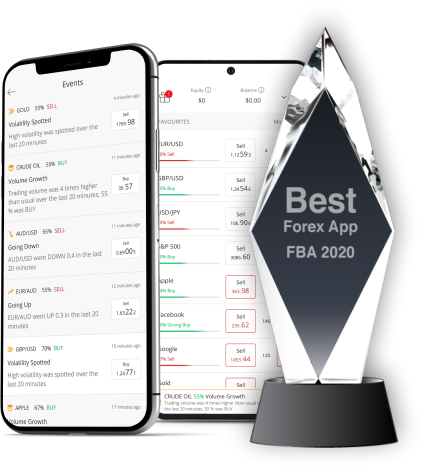
Achieving the ultimate goal of becoming a successful forex trader requires a great deal of discipline. This article will show you how to spot a winning strategy and why discipline is essential to becoming a successful trader. This article also explains the importance to use technical analysis as well as choosing a broker that is regulated. To become a successful forex trader, you must learn to trade with money you can afford to lose.
You must have the ability to be disciplined in order to be a forex trader.
Forex traders must have a proven trading method and plan. It's not enough to copy other traders and just hope for the best. You won't be able to explain your trading performance or follow strict rules if you don't. Trading is a disciplined business. If you don't have self-discipline, it will be difficult to succeed.
Forex traders must be able recognize and manage their emotions. Trading involves risk. Losing money is part and parcel of trading. Traders must be emotionally disciplined to deal with losses and see them as learning opportunities. Leverage is a popular feature of the forex market. It can bring in large profits quickly. If you aren't prepared for volatility, this strategy is not the best.

Identifying the winning trading strategy
Although there isn't a single way to be successful in trading, there are many elements that can help guide you to a profitable strategy. Your goals should be determined first. Some strategies might be better suited for you if you are looking to make quick money. You should determine how much time and effort you can spend trading each day. Then, choose the trading strategy that best suits your needs.
Once you have established your risk tolerance and style, it is time to choose a trading method that best suits your personality. Forex traders who succeed know that winning percentages are irrelevant. They maximize their wins and minimize losses. In short, they know the best way to maximize their profits and minimize losses. But they may have trouble choosing a strategy if they lack the patience or time.
Technical analysis
The most important aspect in technical analysis is being able to spot trends. This involves identifying the price trends and potential reversals. Trendlines are lines that connect significant higher lows with an uptrend, and significant lower highs with a downtrend. They are also called descending trend lines. These patterns are useful in helping you to predict prices and trade accordingly. You should know a few things about this strategy.
Candlestick charts are an example for this type of chart. They give traders a clear picture about where prices will go in the future. Candlestick patterns are a visual representation of price movements that make it easy to predict when you will buy or sell. In general, increases will be represented in one colour while decreases will use another. The candlestick chart, similar to traffic lights should be understood so that traders can act in the right way. If the green and red indicators are not pointing upwards, it could indicate a trend change. A market declines if a wedge is visible.

Use a licensed broker
To be a successful forex trader, it is important to use a licensed forex broker. This will protect you from fraudsters and scammers. There are many forex brokers that are not licensed, but you should only choose those who are registered with a respected regulatory agency. This is because brokers that have received a license are subject to strict regulatory oversight. A licensed broker will offer excellent customer service, which will ensure that your satisfaction is 100%. Good customer support is an important aspect of forex trading. It will keep your account open and help you to trade effectively.
Customer service is key when selecting a forex broker. Look for companies that have been in business for a long time. If you're a forex trader who has a few questions, a company that has been around for a while will likely provide excellent customer service. But, if a forex broker has never been on the market before, they may not be able to provide the customer support needed.
FAQ
What is a Stock Exchange, and how does it work?
Companies sell shares of their company on a stock market. This allows investors and others to buy shares in the company. The market sets the price for a share. It is usually based on how much people are willing to pay for the company.
Investors can also make money by investing in the stock exchange. Companies can get money from investors to grow. They do this by buying shares in the company. Companies use their money as capital to expand and fund their businesses.
Many types of shares can be listed on a stock exchange. Some are called ordinary shares. These are most common types of shares. These shares can be bought and sold on the open market. Prices of shares are determined based on supply and demande.
Other types of shares include preferred shares and debt securities. When dividends are paid, preferred shares have priority over all other shares. The bonds issued by the company are called debt securities and must be repaid.
What are the benefits of stock ownership?
Stocks are more volatile than bonds. If a company goes under, its shares' value will drop dramatically.
If a company grows, the share price will go up.
For capital raising, companies will often issue new shares. Investors can then purchase more shares of the company.
Companies use debt finance to borrow money. This allows them to get cheap credit that will allow them to grow faster.
A company that makes a good product is more likely to be bought by people. The stock's price will rise as more people demand it.
As long as the company continues to produce products that people want, then the stock price should continue to increase.
What is a Reit?
An REIT (real estate investment trust) is an entity that has income-producing properties, such as apartments, shopping centers, office building, hotels, and industrial parks. These are publicly traded companies that pay dividends instead of corporate taxes to shareholders.
They are similar to corporations, except that they don't own goods or property.
What is the difference?
Brokers are individuals who help people and businesses to buy and sell securities and other forms. They take care all of the paperwork.
Financial advisors can help you make informed decisions about your personal finances. Financial advisors use their knowledge to help clients plan and prepare for financial emergencies and reach their financial goals.
Banks, insurance companies and other institutions may employ financial advisors. You can also find them working independently as professionals who charge a fee.
It is a good idea to take courses in marketing, accounting and finance if your goal is to make a career out of the financial services industry. Also, it is important to understand about the different types available in investment.
Statistics
- The S&P 500 has grown about 10.5% per year since its establishment in the 1920s. (investopedia.com)
- Even if you find talent for trading stocks, allocating more than 10% of your portfolio to an individual stock can expose your savings to too much volatility. (nerdwallet.com)
- Ratchet down that 10% if you don't yet have a healthy emergency fund and 10% to 15% of your income funneled into a retirement savings account. (nerdwallet.com)
- For instance, an individual or entity that owns 100,000 shares of a company with one million outstanding shares would have a 10% ownership stake. (investopedia.com)
External Links
How To
What are the best ways to invest in bonds?
You need to buy an investment fund called a bond. You will be paid back at regular intervals despite low interest rates. These interest rates are low, but you can make money with them over time.
There are many options for investing in bonds.
-
Directly buy individual bonds
-
Buy shares of a bond funds
-
Investing via a broker/bank
-
Investing through a financial institution
-
Investing through a Pension Plan
-
Invest directly through a broker.
-
Investing via a mutual fund
-
Investing via a unit trust
-
Investing through a life insurance policy.
-
Investing via a private equity fund
-
Investing via an index-linked fund
-
Investing with a hedge funds